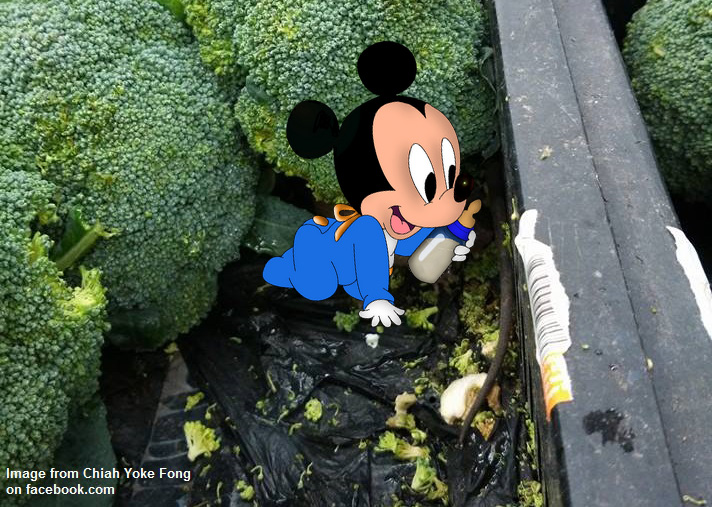These endangered monkeys eat RATS… and end up saving Malaysian plantations billions
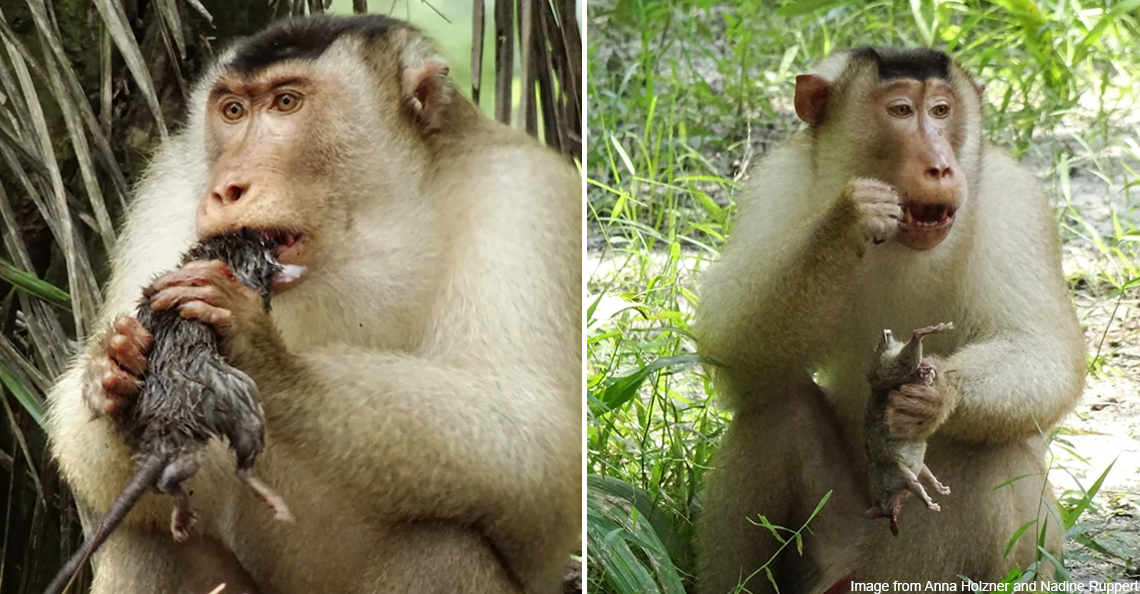
- 6.2KShares
- Facebook6.1K
- Twitter8
- LinkedIn4
- Email14
- WhatsApp57
In what seems like something straight out of Kung Fu Panda an Animal Planet horror documentary, scientists carrying out research in Perak found that a species of monkeys had been feasting… on rats.
Like, for real tho, check this out:
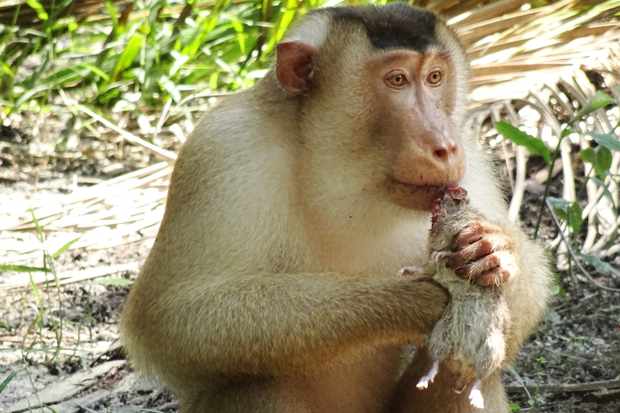
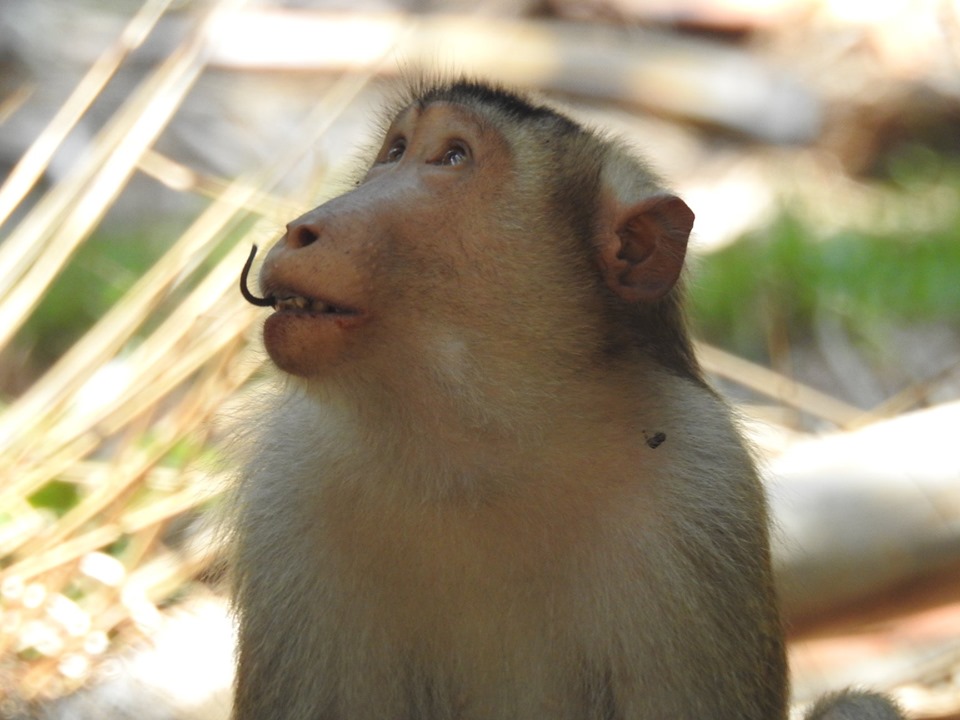
The monkeys were seen eating rats at an oil palm plantation
So in a paper published in Current Biology, a group of scientists who were conducting some research in Perak’s Segari Melintang Forest Reserve and the oil palm plantations nearby noticed that there were two groups of monkeys in the area.
These monkeys, the Southern pig-tailed macaques, are basically what locals here call the beruk. Very much at home in Malaysia and Indonesia, they’re usually rainforest dwellers, but in recent years have also made home in plantations. However our Malaysian hospitality isn’t shared with them la, as they’re commonly deemed as pests by palm oil planters. This is usually because the monkeys tend to eat the oil palm fruit.
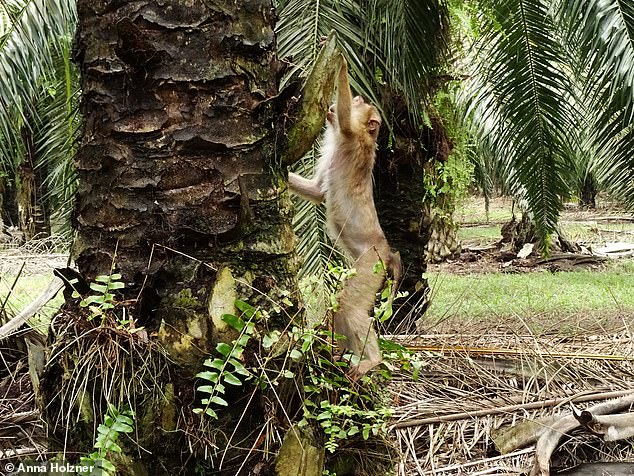
However, like a drunk vegan, it turns out the monkeys have a taste for meat too. The researchers noticed that while the monkeys did indeed spend roughly 3 hours a day at the plantations looking for food and eating, it seems as tho that they weren’t eating only oil palm fruits while they were there as they were caught chomping on rats. This goes against common knowledge of the Southern pig-tailed macaque’s diet, as until now it was thought that they mostly feed on fruits, berries, seeds, fungi and invertebrates (aka not rats).
“I was stunned when I first observed that macaques feed on rats in plantations. I did not expect them to hunt these relatively large rodents or that they would even eat so much meat. They are widely known to be frugivorous primates who only occasionally feast on small birds or lizards,” – Nadine Ruppert, one of the researchers involved, as quoted from Eureka Alert
In fact, the monkeys not only had rats as a treat, but it was close enough for it to pretty much be their main meal. According to the research paper, one group of the pig-tailed macaques ate an astonishing 3135 rats in just one year. Seeing as a group of macaques is usually anywhere between 15 to 40 monkeys, this meant that it’s highly possible just one of these monkeys can eat up to 200 rats a year!
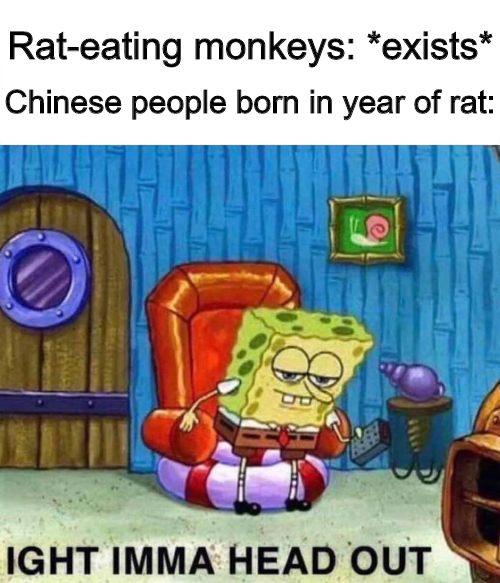
It was however, upon discovering these rat-eating monkeys, that the researchers realised it could actually be a good thing….
Researchers now think these monkeys can be used to control rat populations
Remember what we said about the Southern pig-tailed macaques being treated as pests by the oil palm planters? Turns out, its these very same monkeys who could’ve been helping out oil palm plantations all this while by hunting down the rats.

While the monkeys do eat the oil palm fruit, this only damages like 0.56% of the crops. Compare this to the 10% crop damage usually done by rats, and suddenly the researchers realised that having the monkeys around oil palm plantations might not be that bad of an idea after all.
The over 3000 rats that a group of macaques kill over a year makes up for three quarters of the rat population, meaning that it could potentially drop crop damage from rats to just under 3% a year, pretty much helping the oil palm plantations gain an extra USD650 MILLION, which is roughly RM2.7 BILLION!

Sadly, the pig tailed macaques have been listed as a vulnerable species by the International Union for Conservation of Nature back in 2008 due to hunting and habitat loss such as deforestation. The researchers also added that it’s fairly likely the macaque population has dropped even further since then.
They now hope that with the discovery of the potential good these monkeys have for oil palm plantations, there could be a possible way to work out a win-win situation for both the primates and the planters.
“We expect that our results will encourage both private and public plantation owners to consider the protection of these primates and their natural forest habitat in and around existing and newly established oil palm plantations,” – Anja Widdig, one of the researchers involved, as quoted from Eureka Alert
- 6.2KShares
- Facebook6.1K
- Twitter8
- LinkedIn4
- Email14
- WhatsApp57



